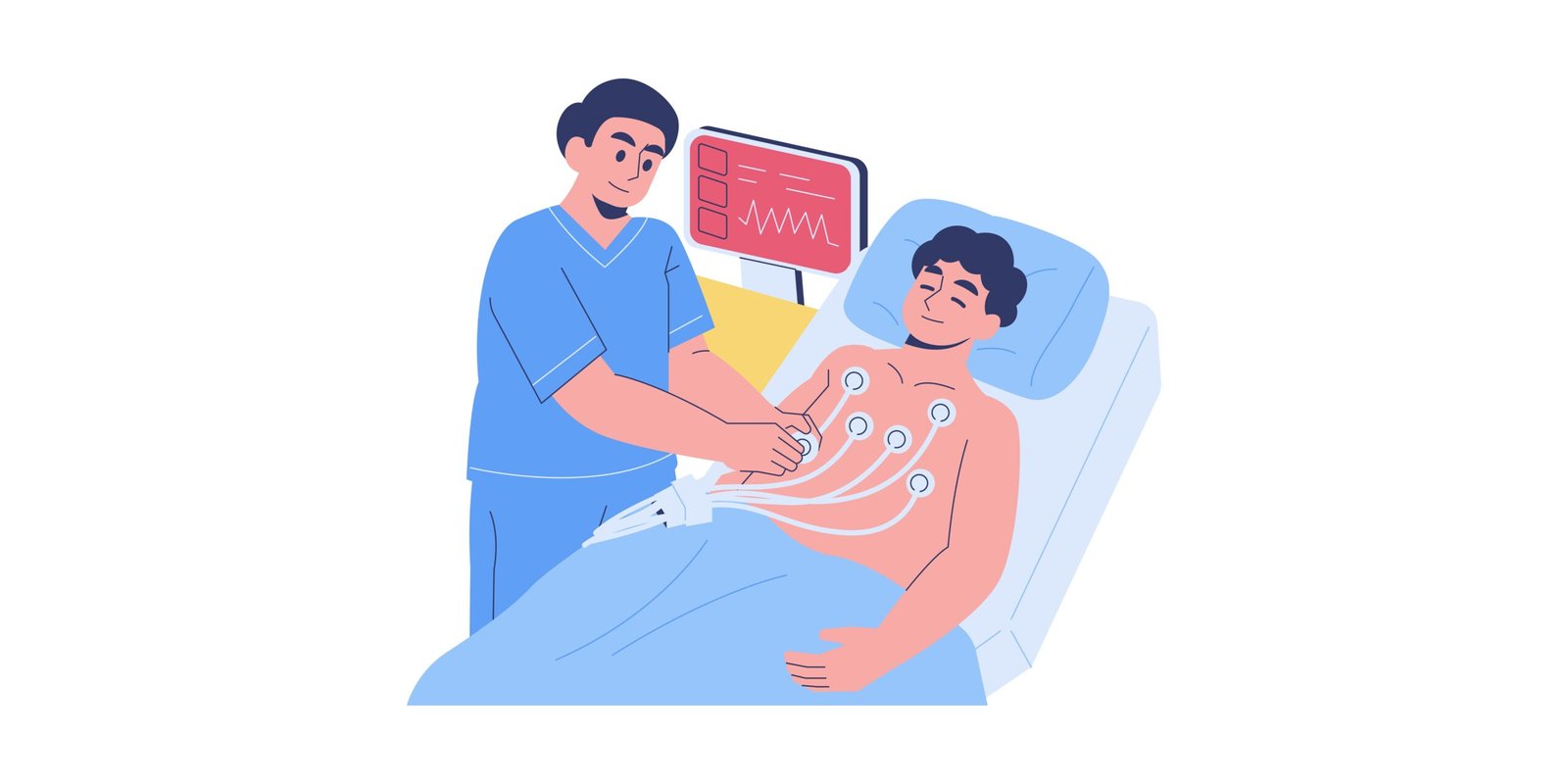In the evolving landscape of healthcare, accessibility and affordability remain critical concerns for individuals seeking medical services. In Bangladesh, a key diagnostic procedure, the Electrocardiogram (ECG), plays a pivotal role in cardiovascular health assessment. As we delve into the cost of ECG in Bangladesh, we explore the factors influencing the pricing, the variations in costs across different healthcare facilities, and the broader implications for individuals and the healthcare system.
Understanding Electrocardiogram (ECG):
An Electrocardiogram, commonly known as an ECG or EKG, is a non-invasive diagnostic test that records the electrical activity of the heart over a specific period. This test is instrumental in identifying irregularities in heart rhythm, detecting cardiac abnormalities, and assisting healthcare professionals in formulating accurate diagnoses.
Factors Influencing the Cost of ECG:
- Healthcare Facility Type: The cost of an ECG can vary significantly based on the type of healthcare facility. Public hospitals, private hospitals, and diagnostic centers each have their pricing structures. Public hospitals, being government-funded, generally offer ECG services at a subsidized rate compared to private counterparts.
- Geographic Location: Regional disparities can also impact the cost of medical services. Urban areas may have a higher cost of living, leading to increased healthcare expenses. Rural regions, on the other hand, might witness lower ECG costs due to reduced overheads.
- Quality and Technology: State-of-the-art facilities equipped with advanced ECG machines and experienced healthcare professionals may charge higher fees. The quality of equipment and the expertise of the technicians administering the test contribute to the overall cost.
- Additional Services: Some healthcare facilities bundle ECG services with other diagnostic tests or medical examinations. The inclusion of additional services can influence the overall cost. Patients should be aware of the specific components included in the ECG package.
- Insurance Coverage: The presence or absence of health insurance can significantly affect the out-of-pocket expenses for an ECG. Insured individuals may enjoy coverage benefits, leading to reduced personal expenditures. Understanding insurance policies and coverage details is crucial for managing healthcare costs effectively.
Cost Range in Bangladesh:
The cost of an ECG in Bangladesh can range from as low as BDT 500 in public hospitals to BDT 1500 or more in private healthcare facilities. Diagnostic centers, which focus solely on providing diagnostic services, may fall within this range. It’s essential to note that these figures are approximate and can vary based on the factors mentioned earlier.
Public Hospitals:
Public hospitals in Bangladesh, such as Dhaka Medical College Hospital and Sir Salimullah Medical College & Mitford Hospital, often offer ECG services at a subsidized rate for citizens. The cost may range from BDT 500 to BDT 1000, making it a more affordable option for individuals with limited financial resources.
Private Hospitals:
Private hospitals, known for their advanced infrastructure and personalized healthcare services, may charge higher fees for ECG tests. The cost can vary between BDT 1000 to BDT 2000 or more, depending on the hospital’s reputation, location, and the inclusion of additional services.
Diagnostic Centers:
Standalone diagnostic centers, prevalent in both urban and rural areas, cater specifically to diagnostic tests, including ECG. The cost in these centers can be competitive, ranging from BDT 800 to BDT 1500. Patients often choose diagnostic centers for their convenience and focus on specialized services.
Navigating Healthcare Costs:
- Government Initiatives: The Government of Bangladesh has implemented various initiatives to improve healthcare accessibility. Public hospitals remain a cost-effective option, and initiatives aimed at providing financial assistance to vulnerable populations contribute to reducing the economic burden.
- Health Insurance Awareness: Increasing awareness about the importance of health insurance can empower individuals to make informed decisions regarding their healthcare expenses. Insurance coverage can alleviate financial stress, ensuring that individuals receive necessary medical care without compromising their financial well-being.
- Promoting Preventive Healthcare: Emphasizing preventive healthcare measures can play a crucial role in reducing the need for extensive diagnostic tests. Public health campaigns and educational programs can contribute to a healthier population, ultimately decreasing the overall demand for medical services.
- Transparent Pricing: Healthcare providers can contribute to a more transparent healthcare system by clearly communicating pricing structures to patients. Providing detailed information about the costs associated with ECG tests and other services enables individuals to make financially informed choices.
Conclusion:
Understanding the cost of ECG in Bangladesh involves considering various factors, from the type of healthcare facility to geographic location and the quality of services provided. As the healthcare landscape continues to evolve, a concerted effort from the government, healthcare providers, and individuals is essential to strike a balance between accessibility and affordability. By fostering awareness, promoting preventive healthcare, and ensuring transparent pricing, Bangladesh can move towards a healthcare system that prioritizes the well-being of its citizens.


